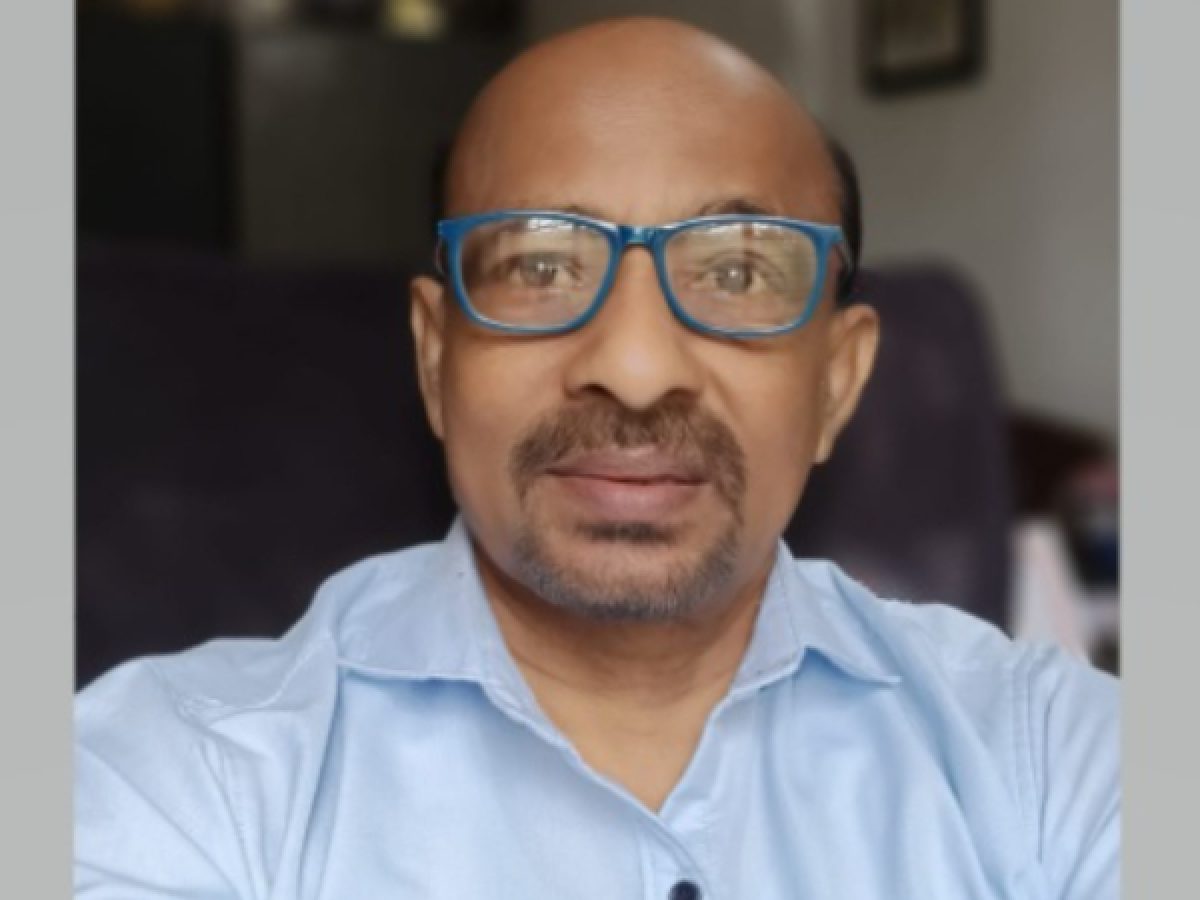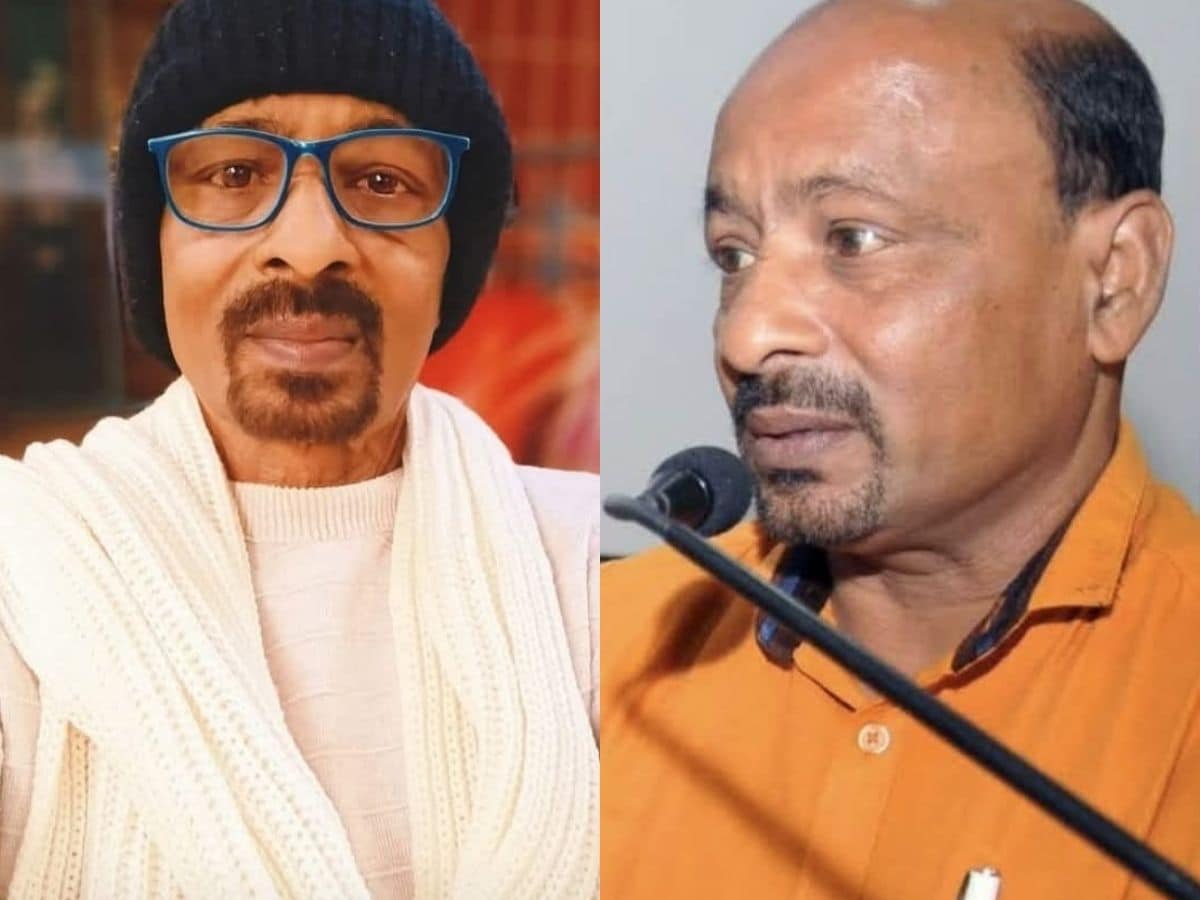Karnataka has lost one of its most beloved cultural chroniclers with the passing of Mogalli Ganesh, a renowned writer, folklorist, and critic who brought the soul of Kannada folk traditions to mainstream literary discourse. Ganesh, aged 68, was known for his earthy storytelling, sharp social insight, and deep empathy for rural life. His works celebrated the language, rhythm, and humor of the common people, portraying folk culture not as an artifact of the past but as a living, breathing force of identity and resistance.
Born in Uttara Kannada, Mogalli Ganesh began his career as a teacher before finding his calling in folklore studies. He became a prominent voice in Kannada literature during the 1980s, blending academic precision with the simplicity of village storytelling. His essays and short stories were rooted in the lives of farmers, performers, and working-class heroes, turning oral traditions into compelling written narratives. He believed that folk wisdom held answers to modern dilemmas—an idea that resonated deeply with readers across generations.
Ganesh’s passing marks the end of an era for those who cherished the authenticity of native expression. Over the years, he had been honored by several literary and cultural organizations for his contribution to Kannada folklore. Writers, artists, and scholars have described him as a bridge between the intellectual and the rural worlds—a man who saw the desi ethos not as nostalgia, but as strength. His absence leaves a profound void in Karnataka’s cultural and literary landscape.
A Life Dedicated to Folk Narratives
Ganesh’s works, including essays and anthologies, highlighted the diversity and vitality of Karnataka’s folk traditions. He often emphasized how oral stories and rural songs carried the moral and emotional weight of history.
Literary peers recall that he combined academic rigor with an unmistakable rustic warmth, giving Kannada folklore a modern voice that appealed to both scholars and common readers alike.

Colleagues said that despite his advancing age, Ganesh remained intellectually active until his final months. He continued writing essays, mentoring students, and attending seminars. His last public lecture, delivered earlier this year, focused on “the survival of folk ethics in the age of globalization,” a theme that summed up his life’s mission.
In villages across Uttara Kannada, people have been holding small gatherings in his memory. Folk singers and storytellers have dedicated performances to him, singing the very ballads he helped revive. For them, he was not an academic but a friend who listened to their stories with respect and warmth.
The Karnataka Sahitya Parishat and other literary bodies have proposed instituting an annual award in Mogalli Ganesh’s name to honor contributions to folk literature. Cultural activists hope that this initiative will keep his vision alive and inspire future generations to study and celebrate indigenous traditions.
Critics note that his death comes at a time when folk culture faces renewed threats from commercialization and cultural homogenization. Ganesh’s writings, they say, remain a reminder that local traditions hold invaluable lessons about resilience, morality, and harmony with nature—values that modern society is fast forgetting.
Social media has been flooded with heartfelt messages from readers who grew up on his stories. Many expressed that his writings made them see their heritage with new pride. His words, filled with rustic humor and emotional honesty, continue to touch readers long after his passing.
As Karnataka bids farewell to Mogalli Ganesh, the consensus among literary thinkers is clear: he was not just a chronicler of folk traditions but their guardian spirit. His pen turned forgotten songs into living memories, proving that the strength of Kannada culture lies in its roots. His legacy, built on humility and truth, will endure wherever stories are told in the language of the people.
Legacy Rooted in the Soil
Ganesh’s influence extended beyond literature into theater, music, and education. His writings inspired folk performers to preserve local dialects and revive traditional art forms that were fading under urban influence.
Cultural institutions plan to organize memorial lectures and readings in his honor, celebrating his belief that the soul of Karnataka lives in its songs, stories, and simple wisdom. Ganesh’s voice will continue to echo wherever folk culture is cherished.

Tributes have been pouring in from across Karnataka’s literary and cultural circles following the death of Mogalli Ganesh. Writers, artists, and theatre practitioners described him as a “custodian of Karnataka’s cultural consciousness,” a man whose life was a celebration of simplicity and substance. They credited him with transforming how folk narratives were viewed—not as relics, but as vibrant reflections of collective identity and resistance.
Renowned playwrights and poets who worked with Ganesh during his early years recalled his keen eye for detail and his ability to turn everyday incidents into profound reflections. He was known for documenting local idioms, ballads, and myths that were on the verge of extinction, preserving them through his essays and stories. His fieldwork among rural communities made him a respected figure among both scholars and villagers.
His contemporaries fondly remember his humility despite his vast knowledge. Ganesh never distanced himself from the people he wrote about; he remained grounded, attending village festivals, folk fairs, and performances to listen, observe, and learn. Those who knew him closely say he lived by his belief that real art belongs to the people and must return to them.
Mogalli Ganesh’s academic contributions were equally significant. As a folklorist and critic, he challenged urban elitism in Kannada literature. His works examined how class, caste, and gender shaped storytelling traditions, arguing that folklore was a mirror of social realities. His research influenced young scholars to explore folk literature as an essential branch of cultural studies.
One of his most celebrated works explored the parallels between folk songs and agrarian life, emphasizing that rural creativity was inseparable from labor and nature. His narratives gave dignity to the working class, portraying farmers, weavers, and women storytellers as carriers of wisdom rather than mere subjects of pity. This approach redefined the tone of Kannada folk discourse.
Beyond his writings, Ganesh was deeply involved in mentoring emerging writers. He encouraged them to travel to villages, listen to local voices, and document traditions firsthand. Many of his students have since become respected writers and researchers, crediting him for igniting their passion for Kannada culture.
His association with various universities and cultural academies led to the introduction of folklore studies as a formal subject in several institutions. He often emphasized that folklore was not just about preserving songs and myths, but about understanding community psychology and shared memory. His lectures, filled with anecdotes, drew packed audiences.
Artists in the theatre community mourned his passing, remembering how his insights helped them adapt folk tales into modern plays. His collaborations with troupes across Karnataka brought renewed energy to traditional performance styles like Yakshagana, Bayalata, and Harikathe. He believed that the stage was a living textbook of people’s imagination.
Ganesh’s storytelling also found resonance in the digital age. In his later years, he began contributing to online literary platforms, where he urged young readers to reconnect with their roots. He often warned that technology, while useful, should not erode the essence of lived culture or replace the intimacy of oral storytelling.
His contemporaries fondly remember his humility despite his vast knowledge. Ganesh never distanced himself from the people he wrote about; he remained grounded, attending village festivals, folk fairs, and performances to listen, observe, and learn. Those who knew him closely say he lived by his belief that real art belongs to the people and must return to them.
Mogalli Ganesh’s academic contributions were equally significant. As a folklorist and critic, he challenged urban elitism in Kannada literature. His works examined how class, caste, and gender shaped storytelling traditions, arguing that folklore was a mirror of social realities. His research influenced young scholars to explore folk literature as an essential branch of cultural studies.
One of his most celebrated works explored the parallels between folk songs and agrarian life, emphasizing that rural creativity was inseparable from labor and nature. His narratives gave dignity to the working class, portraying farmers, weavers, and women storytellers as carriers of wisdom rather than mere subjects of pity. This approach redefined the tone of Kannada folk discourse.
Beyond his writings, Ganesh was deeply involved in mentoring emerging writers. He encouraged them to travel to villages, listen to local voices, and document traditions firsthand. Many of his students have since become respected writers and researchers, crediting him for igniting their passion for Kannada culture.
His association with various universities and cultural academies led to the introduction of folklore studies as a formal subject in several institutions. He often emphasized that folklore was not just about preserving songs and myths, but about understanding community psychology and shared memory. His lectures, filled with anecdotes, drew packed audiences.
Artists in the theatre community mourned his passing, remembering how his insights helped them adapt folk tales into modern plays. His collaborations with troupes across Karnataka brought renewed energy to traditional performance styles like Yakshagana, Bayalata, and Harikathe. He believed that the stage was a living textbook of people’s imagination.
Ganesh’s storytelling also found resonance in the digital age. In his later years, he began contributing to online literary platforms, where he urged young readers to reconnect with their roots. He often warned that technology, while useful, should not erode the essence of lived culture or replace the intimacy of oral storytelling.
Colleagues said that despite his advancing age, Ganesh remained intellectually active until his final months. He continued writing essays, mentoring students, and attending seminars. His last public lecture, delivered earlier this year, focused on “the survival of folk ethics in the age of globalization,” a theme that summed up his life’s mission.
Follow: Karnataka Government
Also read: Home | Channel 6 Network – Latest News, Breaking Updates: Politics, Business, Tech & More

